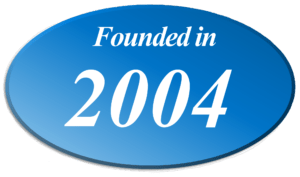
(L to R) Dr. Elwood L. Robinson: Chancellor, Winston-Salem State University; Dr. Karrie G. Dixon: Interim Chancellor, Elizabeth City State University; Dr. Phyllis Worthy Dawkins: President, Bennett College; and Dr. Jimmy R. Jenkins Sr.: President, Livingstone College.
“What can we do to help?” That was the question asked by a corporate representative at a conference we attended last week. The already lively discussion quickly blossomed and increased in focus. Here are the details.
We were in Winston Salem participating in the State of Black North Carolina conference. We fell in love with the people, energy, and positive, forward thinking. We were surrounded by people – including high school students and senior citizens – all of who were asking questions, offering solutions, sharing history, and strategizing.
We facilitated a panel discussion on HBCUs: Their Mission, Their Value, Their Future. The panelists were Dr. Phyllis Worthy Dawkins: President, Bennett College; Dr. Karrie G. Dixon: Interim Chancellor, Elizabeth City State University; Dr. Jimmy R. Jenkins Sr.: President, Livingstone College; and Dr. Elwood L. Robinson: Chancellor, Winston-Salem State University.
The leaders on the panel reminded all of us that you can’t rethink a city without engaging African Americans: HBCUs are central to rethinking community and higher education, and HBCU leaders must be part of the conversation. They talked about the power of a woman’s college; a new bachelor of science in unmanned aircraft (drones!) being offered at Elizabeth City State University; the fact that 71% of students at Livingstone College are first generation students; and how Winston Salem State University doubled the amount of “gap funding” scholarships it offers to students. Gap funding fills the “gap” between what grants, scholarships and financial aid cover and what it costs to go to college. The “gap” is what leads students to leave college before graduating. Increasing gap funding increased the graduation rate!
So how does all this relate to fundraising? First, raising funds for scholarships remains a critical priority. Scholarships and financial assistance change the future. Higher education remains the pathway to increased financial stability and prosperity for individuals, their families, our communities, and the economic development of cities and regions.
Second, corporate representatives are true partners across the nonprofit sector. Their funding clearly makes a difference. Equally important, corporate representatives bring resources that leverage their funding, as well as investments from other sources. At the State of Black North Carolina the question was asked of the HBCU leaders: “how can I help?” The responses didn’t focus on money. No, the presidents and chancellors asked for increased partnership, they talked about the value of internships for students, convenings of leaders, and research that will impact how education meets community needs in the area of allied health. The question brought the conversation alive in a new way.
There are so many ways we can give. Yes, we need to give our financial resources, we can also give of our leadership, relationships, and our access to power and influence. If you are a corporate representative or leader, remember to ask, “how can I help?” If you are a nonprofit leader, be prepared to answer the question. You need more than money – ask for it.
Copyright 2018 – Mel and Pearl Shaw
Mel and Pearl Shaw believe each of us can make a difference. Together we can make a bigger difference. Learn more at www.saadandshaw.com










